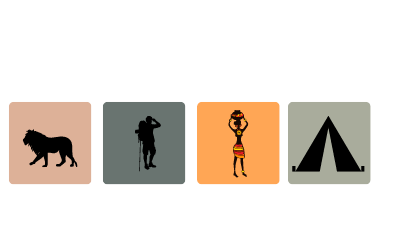How To Minimize Your Chances Of Suffering From Altitude Sickness On Kilimanjaro:
There are a number of practical steps that you can take to minimize the chances of having to abandon your climb of Kilimanjaro due to the effects of altitude sickness:
Acclimatize prior to the climb. Easier said than done if you live at sea level but if you are able to spend time at high altitude prior to the actual Kilimanjaro climb then this is the very best way to avoid altitude sickness. Climbing Mount Meru prior to Kilimanjaro is also an excellent option. Start the climb in the best possible health and with an excellent level of physical fitness. If you are fatigued, unwell or stressed you are more likely to suffer from altitude sickness.
Take it easy on the trail and in camp. You will get sick of your guides telling you to Pole, Pole, but they are right! If you overdo it by pushing too hard you are likely to pay for it later.
Drink plenty of fluids. Getting up in the middle of the cold night may be an unpleasant thought but altitude dehydrates you and the better you hydrate the quicker your body is able to acclimatize. (You should also avoid all alcohol)
Eat well. Even though you may not feel like it you should eat as much as you possibly can at every meal. This will give you plenty of energy and help you to feel great. I find it also helps me to keep warm and sleep well at night.
Sleep well. Sleeping well in a tent is a acquired skill. Spend a few nights out in your tent and sleeping bag prior to your climb so that you have your routine nailed and are used to sleeping in a sleeping bag on a hard surface.
Relax. Relax and think positive. Although not pleasant the vast majority of people suffer only mild altitude sickness (which is like a hangover). Don't think that every headache is cerebral oedema and every cough pulmonary oedema as this is unlikely. By relaxing and enjoying the climb you are far more likely to have a trouble free experience.
Initial Symptoms of AMS
Above 3,500m/11,480 ft the effects of low oxygen on your body tissues become noticeable. Common initial symptoms include:
Hyperventilation (extra breathing) under exertion.
Minor Headache
Increased urination
Periodic breathing at night. Periodic breathing, also known as sleep apnea, occurs during sleep and causes you to wake up feeling that you have missed a breath. It is commonly experienced with restless sleep as your body tries to regulate itself and adjust its normal patterns at altitude. If you have any of the above symptoms you can continue the climb and our guides will keep a close eye on you. However, if symptoms continue to progress you will have to stop the climb and head down the mountain.
Altitude Sickness On Kilimanjaro
All trekkers attempting Kilimanjaro or any other high elevation trek should be aware of the potential threat of High Altitude Sickness or Acute Mountain Sickness (AMS). AMS is caused by the limited oxygen available at altitude. Atop Kilimanjaro there is half the oxygen that there is at sea level, which means you are likely to feel some of Acute Mountain Sickness’ physiological effects.
There’s no understating how important it is to be aware of this potentially life threatening condition and its symptoms. It’s a common misconception that physically fit persons are less likely to feel its effects. Everyone is susceptible to AMS, it does not discriminate. For safety reasons, this article is worth a read even if you have been to high elevations without symptoms before.
Treatment
Initially simple analgesia (e.g. ibuprofen) for headaches. Sleeping pills should be avoided if possible. Acute Mountain Sickness with Cerebral Oedema - Immediate evacuation or descent at least 1000 metres; oxygen if available. Dexamethasone (12-20 mg daily) or Prednisolone (40 mg daily). Acetazolamide 250 mg orally within 24 hours of onset of symptoms and 250mg orally 8 hours later. High Altitude Pulmonary Oedema - Immediate evacuation or descent. If symptoms are acute and/or descent is impossible or delayed consider Nifedipine (20mg tds).


